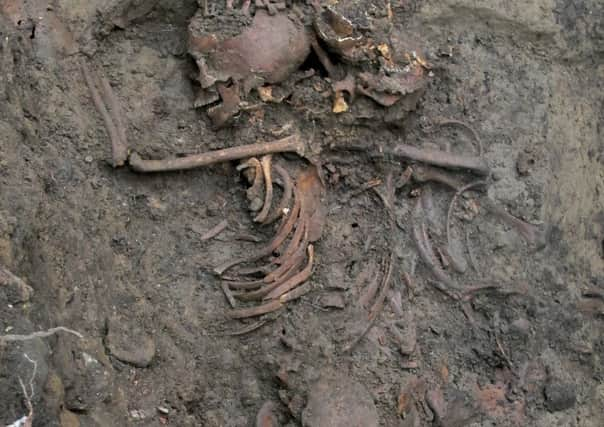No return to Scotland for 1650 Battle of Dunbar prisoners
This article contains affiliate links. We may earn a small commission on items purchased through this article, but that does not affect our editorial judgement.


Between 17 and 28 skeletons discovered in a mass grave close to Durham Cathedral in 2013 were found to be the bones of prisoners from the brutal 1650 battle, some 111 miles (179km) north.
Following widespread consultation over what should happen to the bones, including the suggestion of them being returned to Scotland, Durham University has said they will be buried in a nearby churchyard.
Advertisement
Hide AdAdvertisement
Hide AdA plaque featuring stone from Dunbar will be erected at the original grave site, and further research will be carried out on the remains, expected to finish late next year, before they are reburied.
The remains of the soldiers were found in a mass grave during construction work on the university’s Palace Green Library cafe.
None of the skeletons exhumed is complete as, following archaeological best practice, only those remains directly affected by the construction work were exhumed.
As an estimated 1,700 prisoners from the battle died and were buried in Durham, it was thought possible that there are more mass graves under buildings close to the cathedral.
The university’s project team agreed that keeping these remains as close as possible to their comrades would be morally appropriate.
Professor David Cowling, Pro-Vice-Chancellor for Arts and Humanities at Durham University, said: “We were acutely aware of the strength and depth of interest about the fate of these soldiers, whilst at the same time recognising our ethical, moral and legal obligations.”
Advertisement
Hide AdAdvertisement
Hide AdAfter Cromwell’s unexpected victory over Scottish forces who supported Charles II, around 6,000 were captured, with 1,000 of the sickest being freed.
A further 1,000 of the hungry, defeated soldiers died on the gruelling march south, while many escaped and some were shot for refusing to walk further.
Around 3,000 were imprisoned in Durham, with an estimated 50 dying every day.
DOWNLOAD THE SCOTSMAN APP ON ITUNES OR GOOGLE PLAY